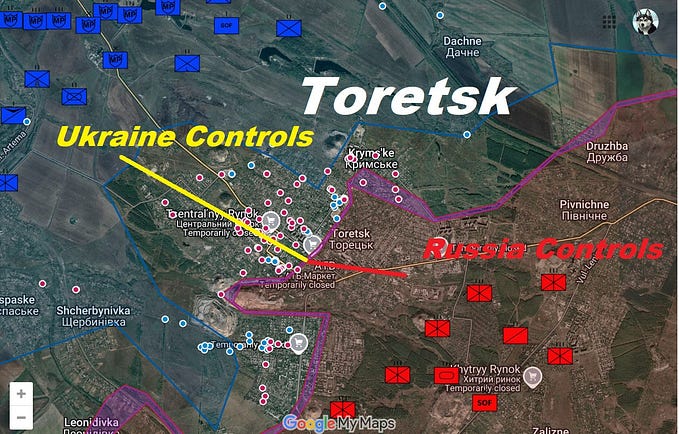THE ENIGMA OF CLIMATE INACTION

“Polls show that a majority of people… believe global warming is a fact, yet somehow they don’t believe it will really affect their lives, and they certainly don’t intend to change their own lives radically to help stop it happening.” Maggie Gee, in ‘Seeing Further: The Story of Science, Discovery and the Genius of the Royal Society.’
‘How could I look my grandchildren in the eye and say I knew what was happening to the world and did nothing?” Sir David Attenborough
“I used to think that the top environmental problems were biodiversity loss, ecosystem collapse and climate change. I thought that thirty years of good science could address these problems. I was wrong. The top environmental problems are selfishness, greed and apathy, and to deal with these we need a cultural and spiritual transformation. And … scientists don’t know how to do that.” Gus Speth.
Farming, city-states, the use of metals, the industrial revolution - all these arose during the last 10,000 years or so of the Holocene, a period of relatively equable climate. That is now over. Humans are fast-tracking the globe to temperatures not seen since the Miocene(1), around 10 million years ago. Does anyone care?
Forgive this paragraph reiterating the obvious: Earth will be just fine, but humans won’t. Already we’re seeing around five million excess deaths per annum(2) and significant economic damage; this is just the start. Without rapid, decisive action, sea-level rise will displace millions; extreme weather events will lead to large-scale crop failures(3), increasing poverty, and massive disruption to global trade. Here in New Zealand, our biggest trading partners are China and Australia. Both are particularly vulnerable(4–8).
One analysis suggests we could see a billion climate-related deaths in the lifetime of today’s children(9,10), and several billion people may become climate refugees(11–14) as their homelands become too hot or humid for human habitation.
SO WHY ARE WE NOT ACTING? (15,16) Some people are genuinely concerned, even choosing not to have kids because they know what’s coming(17–21). But most people seem determined to look the other way. Are our brains simply wired differently? We seem to be stuck in a vicious circle of public apathy and political cowardice reinforcing each other. Is it possible to break this deadly impasse? What would it take to get people to fight for their kids’ future?

There are clearly five major hurdles to overcome:
Media under-reporting. Imagine living in Kiev, but seeing the Russian invasion relegated to the occasional TV news snippet, or newspaper article on page 4. Our mainstream media coverage of the global climate crisis is equally (and culpably) inadequate. Reporters rarely link the ramping-up of deadly floods, storms and droughts to the cause: our GHG emissions. Nor do we see much detailed commentary on future projections, or meaningful ways citizens can contribute to a viable future.
The endless growth cargo-cult. Since the end of WW2, we’ve come to expect that endless GDP growth will lead to ever-rising living standards and the glossy-magazine lifestyle for all. We also tend to assume that there’ll be a tech fix for everything. In reality, the economy is an energy system, not a financial one; money is merely a proxy for access to the resources that energy unlocks(22). Those resources are finite.
Multiple analyses(23–31) show that a low-carbon economy will save both lives and money. A lot of money. But in the short term, a nation that goes low-carbon faces restructuring, and possible competitive disadvantages vis-à-vis their trading partners. Such is the power of short-term thinking that these obstacles are seen as a major hurdle.
Political issues. Politicians make a living by selling optimism rather than telling the truth; they are also subject to endless corporate lobbying. The adversarial nature of our parliamentary system favours point-scoring and short-termism, so it’s hardly surprising that policy change thus far is totally inadequate.
Societal norms. We take our cue from those around us. Neither the media nor our leaders seem overly concerned. Everything must be fine, surely? Our friends are planning flying holidays or road trips; why shouldn’t we? Hence the bubble of unreality continues.

Personal factors. While families struggling to pay the bills have other priorities, the rest of us have no such excuse. The median per-capita Kiwi carbon footprint is well above what it needs to be if we want a liveable future(32–34). Facing the harsh reality - that our lifestyles are unsustainable - is seriously disturbing. Perhaps that’s why so many people simply reject any acknowledgement of what we are facing. Were they to accept it, they would have to (a) take a long hard look at their own lifestyle & make some painful changes, and then (b) get political for their kids’ sake.
Sheer disbelief is a major factor. Until we personally take a major hit via massive, devastating weather events, it’s hard to take climate breakdown seriously. We’re so used to the post WW2 growth scenario that an abrupt shift over the coming decade or two seems implausible. Much easier just to look the other way and stay happy… (and let your kids fend for themselves in an uncertain, unstable future world).
Another issue: we’re still fundamentally tribal primates. Big cars and an affluent lifestyle are still seen as symbols of success, status and sexual attractiveness (35,36). And advertisers, of course, know that very well (37). In today’s world, “tribal” of course can take a number of forms — it can mean allegiance not just to a clan or an ethnicity but to a political party, a religion, or a world-view. There is good evidence that tribal allegiance can be so powerful that it overrules reason or logic(38).
Greenhouse gases are invisible; it’s hard to grasp that our lifestyle contributes to present and future hardship and suffering. And it’s so easy to cop-out by saying that as an individual — or even as a small nation of just five million — what we do hardly matters (the so-called ‘tragedy of the commons’). From there, it’s but a short step to saying ‘we’re doomed anyway, so why not have fun now’? The various excuses for inaction have been well-described in this detailed analysis(39).
We’re all somewhere on the selfishness spectrum: an individual who chooses to stop climate-wrecking activities such as flying is taking a major personal lifestyle hit for the sake of people they don’t know, and for future generations. Can we actually do that?

The climate crisis fundamentally changes what it means to be a responsible citizen. Our flouting of planetary boundaries demands that we redefine morality. If we fail, how will we face our kids, two or three decades hence?
It is still within our power to limit the harm we’re causing. We have the answers: drastically cut our fossil-fuelled travel, boycott polluting industries, and get political. The stakes are huge. We’ll only make progress if team spirit and love for our kids drives us to face reality and work together.

When the affluent among us acknowledge that we’re wrecking our kids’ future, when politicians are bombarded by thousands of submissions demanding action, when the SS4C (student strike for climate) movement swells to hundreds of thousands of citizens of all ages demanding real leadership; then, finally, there might be grounds for optimism.
References:
3. https://phys.org/news/2020-03-extreme-weather-action.html
5. https://phys.org/news/2023-07-australians-climate.html
6. https://www.rba.gov.au/speeches/2021/sp-dg-2021-10-14.html
7. https://phys.org/news/2023-07-extreme-heat-occurrences-humidity-china.html
8. https://www.bbc.com/news/world-asia-china-66616699
9. https://phys.org/news/2023-08-climate-changing-human-billion-deaths-century.html
10. https://www.science.org/doi/10.1126/sciadv.adg9297
11. https://www.brookings.edu/research/the-climate-crisis-migration-and-refugees/
12. https://www.dni.gov/files/ODNI/documents/assessments/NIE_Climate_Change_and_National_Security.pdf
13. https://phys.org/news/2023-02-small-temperature-large-scale-migration.html
15. Denial is over: Climate change is happening, but why do we still act like it’s not? https://phys.org/news/2023-11-denial-climate.html
16. William E. Rees: The Enigma of Climate Inaction — On the Human Nature of Policy Failure https://youtu.be/WDWhjSUu8UY
17. https://newsroom.co.nz/2023/11/29/majority-say-nz-will-see-severe-climate-impacts-in-next-decade
20. https://yaleclimateconnections.org/2022/04/some-young-adults-are-worried-about-having-kids/
21. https://phys.org/news/2023-11-qa-climate-despairwhat-difference.html
22. https://surplusenergyeconomics.wordpress.com/2022/05/21/229-in-the-eye-of-the-perfect-storm-2/
23. https://www.nature.com/articles/d41586-022-04412-x
24. https://www.cell.com/joule/fulltext/S2542-4351(22)00410-X
25. https://www.bbc.com/news/science-environment-62892013
27. https://thebulletin.org/2018/06/benefits-of-curbing-climate-change-far-outweigh-costs
29. https://www.newsroom.co.nz/sustainable-future/climate-inaction-likely-to-cost-billions-treasury
32. https://www.oxfam.org/en/press-releases/carbon-emissions-richest-1-set-be-30-times-15degc-limit-2030
34. https://phys.org/news/2022-04-halve-energy-climate-catastrophe.html
35. https://phys.org/news/2023-12-survey-results-men-expensive-cars.html
36. https://phys.org/news/2024-01-evolution-humans-climate.html
38. https://phys.org/news/2024-02-people-climate-deniers-reveals-unexpected.html “Our data does reveal some indications of a variant of motivated reasoning, specifically that denying the existence of human-made global heating forms part of the political identity of certain groups of people.”








